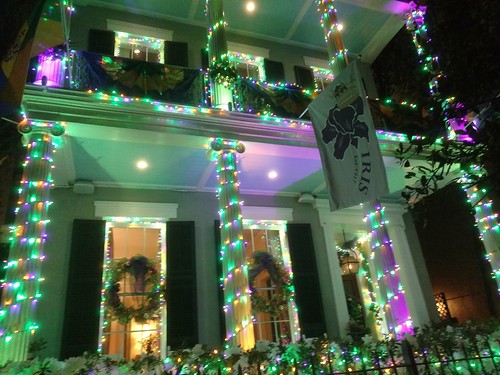
I thought this was a good essay by Bart about I guess what I'd call the spiritual politics of Carnival. There's more to it than this but here is the key bit.
There’s a subversive aspect to the disruption of Carnival, and I like that. It’s not revolutionary, of course. In fact, the function of Carnivalesque celebrations is generally to reinforce the social order by providing a temporary relief from it. In ancient Rome, slaves became masters — but only for a day. It’s the exception that proves the rule.This gets to the heart of it. Part of the drama of Carnival lies in devices and symbols turned alternately to oppressive and subversive purposes in a cycle of competitive co-option. With the proper context, one can read in it the story the city's social and political equilibrium in any given year. And this is what I mean when I say that Carnival is our annual act of collective civic mediation. This, more than anything else, is what makes it invaluable.
Still, as we have seen, these traditions can have unintended consequences. We get a glimpse of how provisional and arbitrary our social order is during Carnival. If we can carry that insight forward, we might work and fight for a better world all year round.
To that end, I do my best to see and document as much as I can each year. I see every parade I can get to. I take tons of photos. I try to write down as much as I can. Some years that overwhelms me and I never catch up. I'm a little behind right now, in fact. That's okay, though, because the key to doing this is to take it as it comes. You are participating in a citywide fever vision which bends reality toward absurdity and thereby tells us truths. It is cathartic and revelatory and sprawling and baroque and silly and profane and you should be very tired at the end of it. But you can't force that to happen for you. You just have to go be in it for a while.
More later. I don't want to miss it.
No comments:
Post a Comment